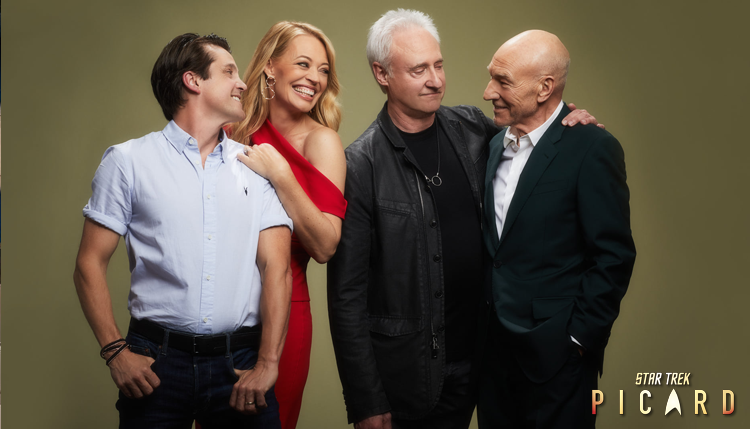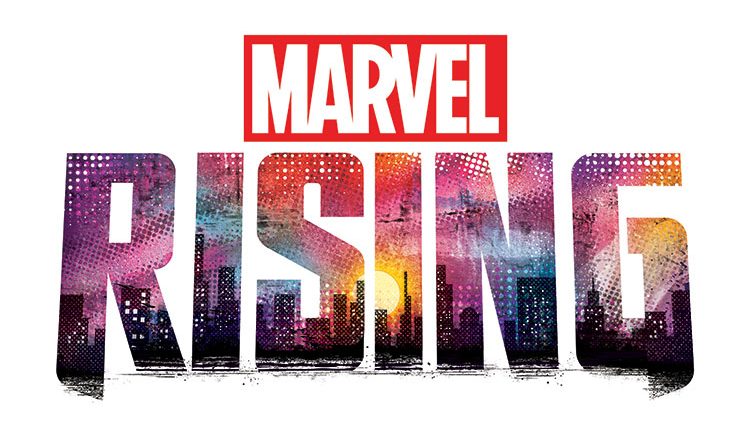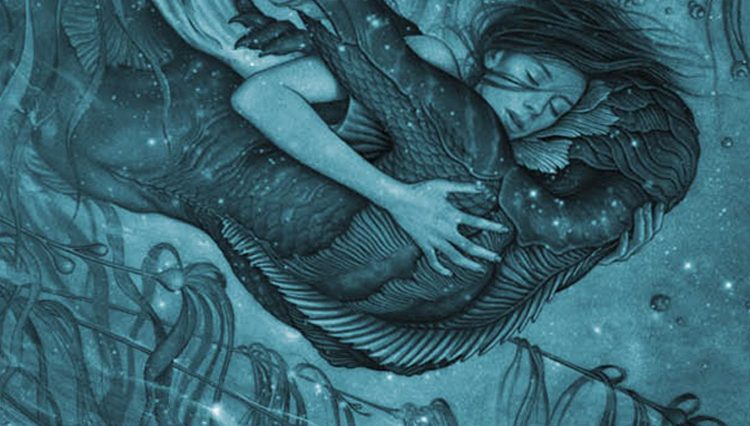
“I’ll never shoot you because I’m a pacifist. But I could.”
I know we’re supposed to feel something, ANYTHING, for innocent characters to be lined up and executed or tortured by bad guys, but what’s missing is reason. Star Trek: Picard has been nothing but non-stop violence, torture, and gore. The scene that precedes the execution is an “extended” version of a discussion between the Leslie Bibb/Kristen Bell knock-off and Commodore Oh (why are her ears so prominent?), wherein Oh performs a mind-meld to demonstrate just how bad things can get if Synthetics are allowed to run rampant. Indeed, the mind-meld is so intense that the poor girl tosses her cookies.
So now we know why she feels the way she does. It doesn’t explain how or why she’s amenable to these bizarre ideas, and it doesn’t explain her cold-blooded murder of Bruce Maddox. After rescuing Soji from the Borg cube, Picard takes her to Nepenthe, home to William Riker, his wife, Troi, and their daughter, Kestra (named after Troi’s deceased older sister*). Kestra is … I honestly don’t know how to describe her. Feral? Not really? Special needs? She definitely has that vibe. It’s just a costume. Bow and arrows, simple skins for clothing, the works. She’s dressed like a lesbian warrior princess, but okay. Let it go, Dave, just … let it go. If you have to explain why you dress the way you do … just let it go.
It’s nice to see Troi and Riker, but I don’t know why Picard chose to detour the mission to this lovely locale, unless he had no choice. Hugh had arranged for a spatial trajector (acquired by assimilating the Sikarians from the Star Trek: Voyager episode, “Prime Factors”**) to transport them to safety with Rios scheduled to rendezvous at a later date. Riker comes off as a survivalist, like a prepper. When Picard says they’re being pursued by evil Romulans, Riker immediately orders shields around his home. Troi must’ve made more than few concessions in her marriage. She never struck me as a wilderness gal, but okay.
They’re not completely “wilderness,” as Riker makes a pizza, and he goes on and on about the pizza. I mean, you wanted pizza? This is the episode that has pizza in it. Tom “Pepperoni” Paris CAN SUCK IT! There’s a little bit of tragedy in the Riker family. It seems they had a son named Thaddeus (who would’ve been 18), but, for once, I’m not getting ram-rodded with exposition. He dead. He gone! Troi explains to Soji that Thaddeus died from a simple illness that could’ve been easily cured with synthetic positronic technology, but the ban put in place by Starfleet prohibited the use of the technology. It almost seems as if the writers wanted to give Riker and Troi a political reason to protect Picard other than loyalty and friendship.
Riker and Troi know almost immediately that Soji is an android. How? The show has gone to great pains to mask her true identity, but these two can figure it out in five minutes? Meanwhile on the Borg cube, Hugh and L. Ron-El-Nor-El-Ron (Romulan sword dude, you know, long-hair…) try to evade the evil Romulan sister. Hugh is killed and we have to say goodbye to another beloved ancillary character. Goodbye, Hugh … and a flight of angels sing thee … you know the rest. I’m sure he and Icheb are partying somewhere in the Borg Heaven Uni-Matrix.
Understanding the bigger picture of Star Trek: Picard is what frustrates me. The simplest explanation is that the Romulans hate the Borg, and Starfleet hates androids, but that is not enough to unlock the creamy nougat center of evil pulsating through the veins of these characters. In reality, if you think you’re doing the right thing, you don’t twirl your mustache, or seductively circle your prey or those you wish to manipulate. The “bad guys” of Picard are one-dimensional pieces of cardboard, but I do have to give credit to the Leslie Bibb/Kristen Bell knock-off because she is trying to do something interesting with her character. She’s conflicted, and you can definitely pick up the conflict. But why? Why is she conflicted?
I now understand why it took so long to get to this point. Seven episodes into a ten-episode series and things are finally happening, but we have to interrupt everything to have Riker and Picard walk through the woods while engaging in coffee talk. This is what us old fans wanted. This is really all we wanted. We didn’t want schemes and subterfuge and evil plots. The mission of Star Trek was very much like Data’s reason for living, as he explained it to his true daughter, Lal: “to contribute in a positive way to the world in which they live.***” That’s what mattered most to me, not only as a fan, but as someone who has explored these ideas on his own.
* “Dark Page” was one of the few superior Star Trek: The Next Generation episodes from the seventh season, in which Lwaxana reveals that Troi had an older sister (named Kestra) who had drowned in a lake when Troi was just a baby. This episode, and “Half a Life,” were Lwaxana’s best stories and Majel Barrett’s best moments in the franchise.
** In “Prime Factors,” Janeway tried to barter for the spatial trajector technology from the Sikarians, but they refused. It’s likely the Sikarians as well as all the other cultures they encountered in the Delta Quadrant were ultimately assimilated by the Borg.
*** In “The Offspring,” Data tells Lal, ” … it is the struggle itself that is most important. We must strive to be more than we are, Lal. It does not matter that we will never reach our ultimate goal. The effort yields its own rewards.” Sometimes Data would grasp the best leaves of humanity and, in a way, he was the most human character in all of Star Trek. This was a prevalent opinion in Star Trek: The Next Generation that of all the characters, it was Data and Worf who embodied the best or most relatable aspects of humanity, yet neither character was human.
Star Trek Rewind explores the Star Trek universe. From Archer to Janeway, Kirk to Picard, and Georgiou to Sisko — boldly read what no one has read before!





